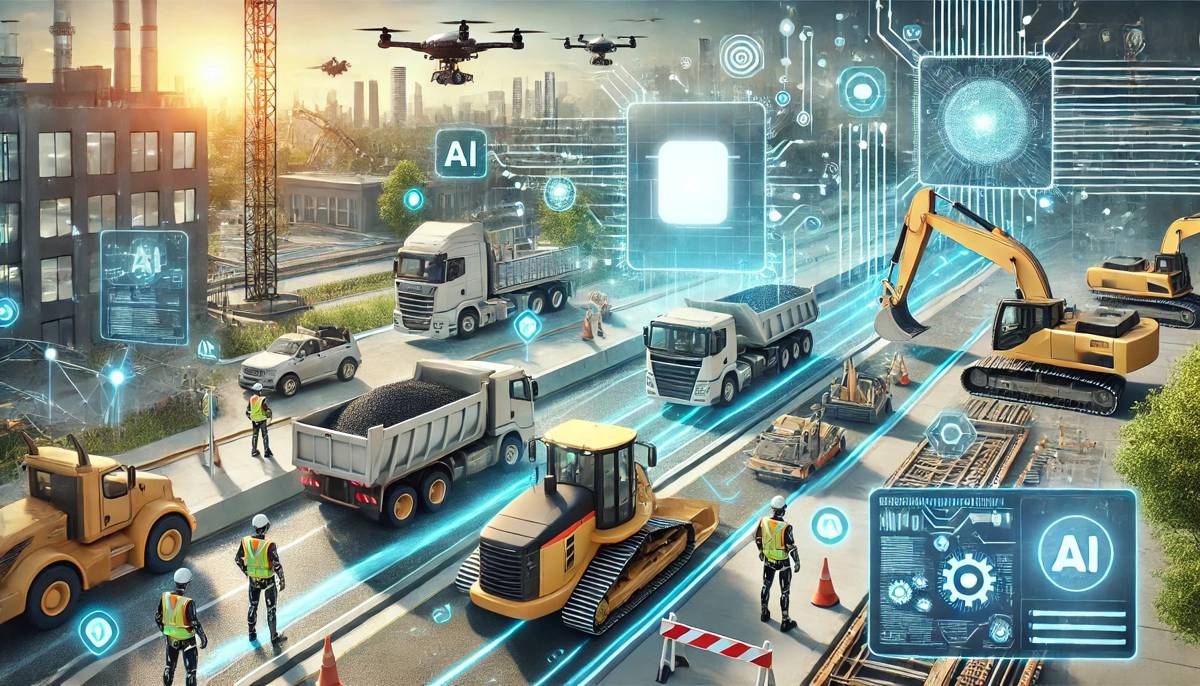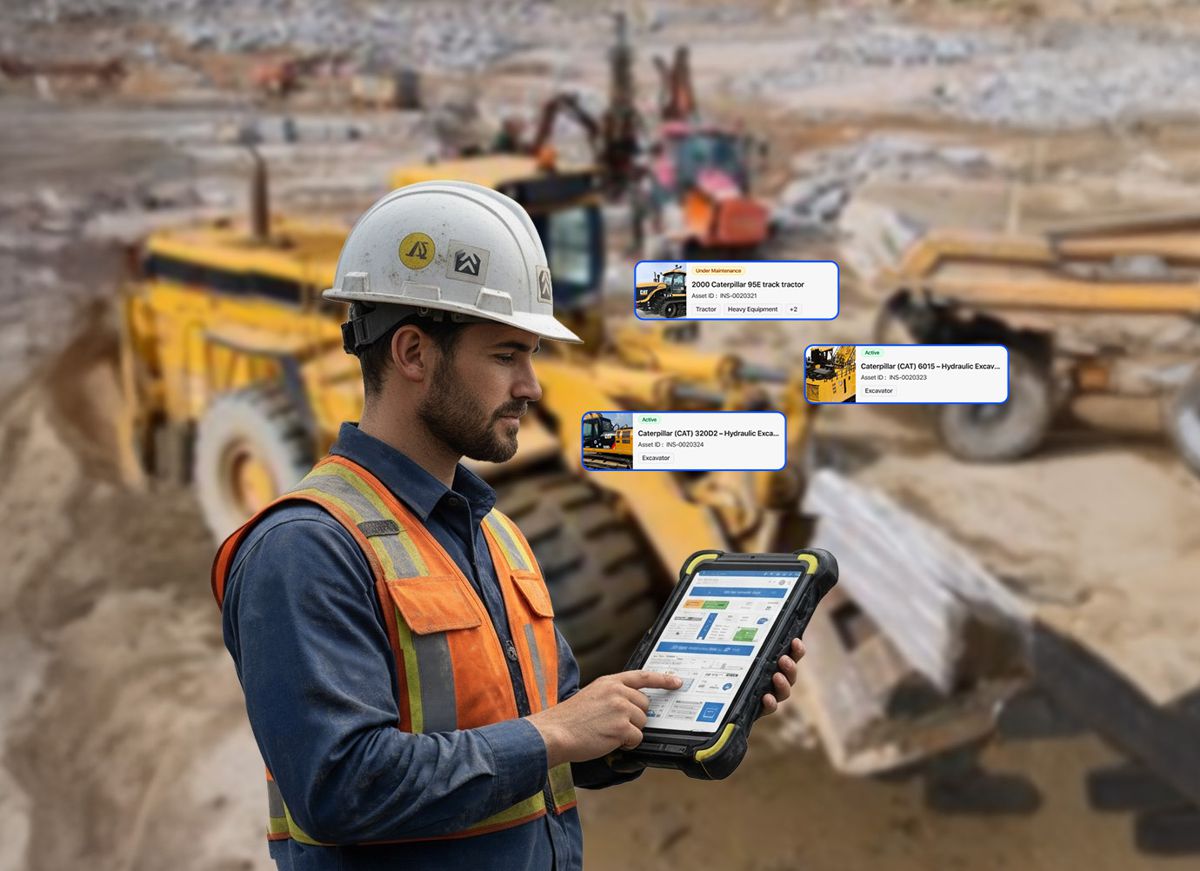AI putting Highway Construction on the Express Lane to Success
You’re cruising down the highway, on your way to an important meeting – only to be met with the dreaded sight of orange cones and flashing lights. The traffic slows to a crawl, and suddenly, what was supposed to be an easy commute turns into an obstacle course. We’ve all been there – stuck in the gridlock, and cursing the inconveniences of highway construction – but though it can pose major disruption to our daily routines, the development and upkeep of roadways is critical to maintaining functional transportation infrastructure.
Highways are the arteries of modern civilisation, facilitating the flow of goods, services, and people. Ironically, the construction and maintenance of roads and highways, designed to make our journeys smoother, can cause significant headaches. But what if there was a way to transform these projects – reducing delays, minimising costs, and ensuring that end results are well worth any temporary disruptions?
Recent breakthroughs in artificial intelligence (AI) may allow transportation planners and developers to do just that, by applying today’s cutting-edge technology to the age-old challenges of highway construction.
Common Pitfalls of Highway Construction
1. Planning and design flaws
One of the biggest hurdles in highway construction occurs right at the start – during the planning and design phase. At this critical stage, missteps can lead to costly delays and budget overruns. Unanticipated issues (such as soil instability, or unexpected environmental impacts) can derail even the most well-thought-out plans. When the ground beneath the highway isn’t properly assessed or when designs fail to consider the full range of environmental factors, the project can face significant setbacks. These flaws aren’t just minor hiccups; they can lead to rework, delays – and ultimately, budget overruns reaching into the millions.
Today’s AI-driven technology offers effective solutions. For instance, advanced simulation tools, like ALICE Technologies, allow project managers to create digital twins of highway and roadway construction sites, and use them to test different construction scenarios. Iterative scenarios can be modeled at top speed, revealing potential challenges to constructability before they manifest on the ground. By identifying these issues early on, teams can refine their designs to mitigate problems and delays, avoiding project pitfalls from the outset.
2. Project setbacks and delays
Delays in highway construction are almost as inevitable as development itself. Whether unexpected weather events or supply chain disruptions, equipment malfunctions or labour shortages – countless factors can push timelines beyond their original deadlines. No matter the cause, the end results are the same: extended road closures and detours, frustrated commuters, and ballooning costs.
For the first time, technology allows project managers to adapt to changes (and potential delays) in real-time – even mid-construction. AI-driven tools for scheduling optimisation allow project stakeholders to dynamically adjust timelines and reallocate resources, responding to unforeseen challenges as they arise. This added flexibility can help maintain project momentum when facing the unexpected – minimising downtime and costs, while keeping traffic moving.
3. Budget overruns
Managing the budget of highway construction is a major burden. Transportation and roadway infrastructure projects commonly exceed their original cost estimates – sometimes by staggering amounts. These overruns can stem from a variety of issues – unanticipated complications, rising material costs, or simply underestimating the sheer scope of the work.
To combat budget overruns, project managers can leverage AI-driven tools with scenario modeling capabilities. By simulating different project outcomes, they can identify potential risks and budget accordingly. This proactive approach supports accurate financial planning and forecasting throughout the project’s life cycle – so stakeholders can make informed decisions from design to completion.
Addressing Today’s Challenges with Technology
1. Streamlining project management
Traditional project management often suffers from inefficiencies. Siloed communication, outdated data, and fragmented workflows are all common contributors to costly delays and budget overruns. The sheer size and extent of highway construction projects only magnifies these challenges. A more integrated, transparent process (where all stakeholders have access to real-time information) can help project planners and stakeholders prevent compounding issues.
2. This is where technology steps in.
Rene Morkos, founder and CEO at ALICE Technologies commented: “Use of an integrated platform can improve project outcomes by providing a centralised hub for information. When data is continuously updated and accessible across planning and construction teams, coordination and communication improve. Increased data transparency keeps project stakeholders on the same page, eliminating inefficiencies and miscommunication that might cause delays to highway construction.”
3. Enhancing resource allocation
Resource management is another area where highway construction projects often falter. Whether battling the inefficiencies of resource overallocation, or the delays of under allocation – balance is crucial.
AI tools designed for resource optimisation are revolutionising highway construction. By analysing data to predict the best allocation of resources, these tools optimise assignment of materials, labor, and equipment to ensure they are used as efficiently as possible. Maximising the use of available resources helps keep the project on schedule, while reducing waste and lowering costs.
4. Improving safety and compliance
Safety is a critical concern in highway construction – especially when workers are operating in close proximity to live traffic, or dealing with hazardous materials. According to the US Department of Transportation Federal Highway Administration, one worker death occurs for every $112 million in highway construction expenditures – making compliance with safety regulations a moral imperative (as well as a legal one). Still, ensuring worker safety on a busy construction site is no small feat.
Predictive technology can play a critical role in improving safety outcomes. By analysing data from past projects and current conditions, today’s tools can proactively identify potential issues in site flow and constructability, mitigating risk by preventing accidents before they occur. This approach not only keeps workers safe, it also can be leveraged to improve adherence to necessary safety regulations, avoiding costly penalties to project stakeholders.
5. Real-world applications
Consider a recent highway project – eight miles of interstate roadways, scheduled for expansion from four to six lanes. When facing potentially disastrous delays, the project team leveraged technology for advanced scheduling optimisation to quickly reschedule tasks, reallocating resources to unaffected areas. The result? The project not only avoided costly delays, it was completed ahead of the original project schedule – with savings almost exceeding £18M.
Rene continued: “The ability to anticipate and respond to challenges in real time proved paramount to maintaining project progression in alignment with budget and timeline constraints. This is just one example – but it highlights modern technology’s potential to impact the success of highway construction projects.”
6. Emerging technologies
As we look to the future, the potential for technology to revolutionise highway construction is vast. From autonomous construction equipment to advancements in material science, the next wave of innovation promises to make projects faster, safer, and more efficient. These technologies are not just on the horizon—they are beginning to be implemented today, setting the stage for a new era in infrastructure development.
Highway construction is a complex, challenging field, but with the right tools and strategies, we can eliminate roadblocks to progress. Modern technology opens the road to highway construction that is more efficient, cost-effective, and less disruptive to the public. To fully realise the benefits of these advancements, project leaders need to invest in the future. By embracing adoption, highway construction companies can position themselves at the forefront of the industry – while ensuring that our roads and highways transport us smoothly from today’s needs, into the future.





























